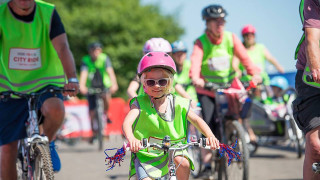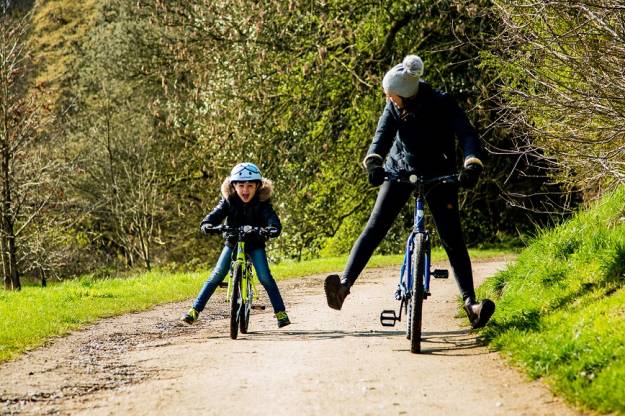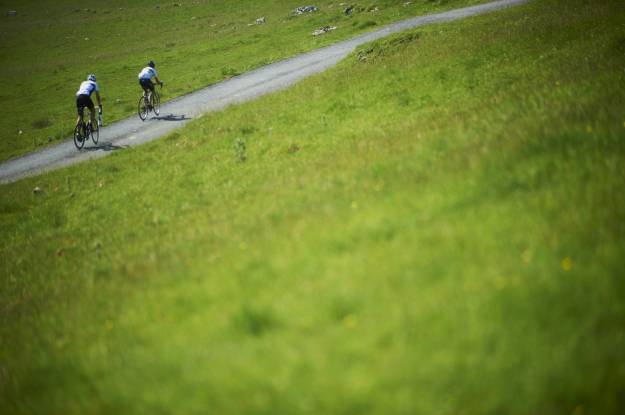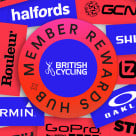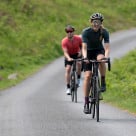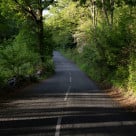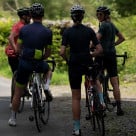Organising a Cycling Festival, Mass Participation Cycling Event or Workplace Cycling Event has the potential to spread the word of cycling amongst large group of people, giving members of the public access to cycling opportunities, training, information and a pathway to further cycling participation.
We have put together some information that we have learned over the years to help support the planning of a Cycling Event within your organisation or local authority area. For further specific information on organising cycling events such as races or sportives please see our events pages.
Planning:
‘Advanced planning is key, trying to organise events at the last minute never works’
The Team - We recommend pulling together a number of key partners and volunteers who might have an interest in the event as a temporary events team, organise a schedule of meetings in the lead up to the day, assigning specific, time-sensitive actions to group members, playing on members strengths and skills. British Cycling have collated some information on volunteer recruitment that can be found HERE.
Identify your audience early – Knowing who might be at your event is crucial in the planning process, do you have a specific population group in mind? Families, Women and Girls, Adults, Over 50’s? Find out what might attract these groups to your events.
Funding – Securing a backer for your event could help to cover costs and assist with marketing locally. Look for local companies who might be active in the area or within the sport.
Structure – Identify a project coordinator (if not yourself) make it their responsibility to organise meetings and report back to the team.
Weather – Living in Wales it is always worth having a plan B in the case of bad weather, thinking of areas that may be used that are under cover or protected from wind could save stress on the day.
Where to hold the event:
Having a suitable venue to hold your event is crucial for the success of the day, we suggest that the venue include the following:
- A traffic free route of around 2-3miles in length
- Car park
- An open area for coaching or skills sessions (Tennis courts work well)
- Tea and coffee facilities
- Clear signage
- Areas for retail and information stands or gazebos
It is worth speaking to local council events or recreation teams whilst in the early planning stages to see what venues could be available that are owned by the local council, parks, leisure centres, cycling tracks or off road circuits or school grounds are often good picks. Don’t forget that there are also venues managed by organisations such as The National Trust, Natural Resources Wales and the RSPB who may be interested in using an event of this sort to attract a new audience.
When:
‘Link/time with major events eg Sport Relief, Commonwealth Games, Olympics, Tour De France’
When to host your event is largely dependent on your audience and venue, it is worth checking well in advance if your event clashes (or compliments) with other national or local ‘big days’ such as rugby or football internationals, festivals or school fates.
Weekend events offering a variety of activities throughout a day can often be a safe bet.
What could Welsh Cycling offer?
Welsh Cycling are always keen to support free of charge recreational cycling events. Whilst we only have a modest team of development officers we have many links to coaches, clubs and volunteers within the community who may be keen to attend your event.
We could:
- Provide links to local clubs – Clubs may be keen to provide a presence at your event, particularly if the event was aimed at attracting new riders to the sport. If your local clubs have a ‘HSBC UK Go Ride’ accreditation they may be able to offer a coach to run children and youth skills sessions. Use the club finder to locate clubs in your area. Welsh cycling’s HSBC UK Go Ride team would be able to support clubs by offering ideas for activities that might work well on the day e.g. running a skills area, mini races or planned coaching sessions.
- Go Race – If you have the interest of local schools Welsh Cycling could help to organise a ‘Go Race’ competition at your event. This is event and school specific and would need to be discussed further with your local HSBC UK Go Ride coach (contact details below).
- HSBC UK Breeze Rides – HSBC UK Breeze is a program set up to encourage Women and Girls to get on their bikes. Breeze Rides could be organised to, from or within your event, please get in touch with your regional Women and Girls Participation Officer to see if there is a Breeze Champion in your area.
- HSBC UK Ride Social – You don’t have to be a HSBC UK Breeze champion or club to run a ride, create a route that compliments your event and post it to www.letsride.co.uk under HSBC UK Ride Social. This will allow cyclists nationally to search and join your event, let us know if you need any help in using the website, it’s free marketing!
- Help find a local club or group to run a ride to or from your event – this might be a beginner ride a family ride or an introduction to riding with a club. Use the club finder to locate clubs in your area or get in touch with the participation team to see if there are any local Ride Leaders who may want to help out.
- Provide details of local coaches – If there are no clubs locally who are able to help out at the event, we hold a list of private coaches who may be keen to get involved with your project.
What could be offered?
There are a number of options when it comes to stalls, attractions and events on the day, we have provided a list of ideas below, sourcing local retailers and suppliers alongside the national organisations can be a bonus from a sustainability point of view.
- Dr bike or maintenance sessions
- Commute planning sessions – Know of anyone who might have some good map skills?
- Get back on your bike sessions for the over 50’s
- Learn to ride sessions – National standards coaching for children is often a popular draw
- Professional shows / stunt bike sessions
- Information stands
- Links with local inclusive cycling groups
- Bubble bikes
- Rollapalooza
- Rental bikes
- Traffic free cycling course or route – Risk assessment required
- Try out a new bike
- Rewards for cycling to the event
Marketing:
‘One of the most commonly seen downfalls of cycling events is poor marketing.’
Marketing materials – Production of good quality marketing materials can make a big difference to your event. Ensure that your materials focus on the benefits of attending the events such as trying a new bike or for your child to learn to ride safely. Advertise your event in the months before by placing posters and flyers in areas where there is regularly a high volume of people.
Press release – If you are opening your event up to the local community, consider using local radio and newspapers, create a press release and send it out to media outlets in the weeks prior to your event.
What to call your event – Clearly outlining the nature of the event within title could help potential attendees identify if this event is for them, e.g. Family cycling day, Workplace cycling fun day, Over 50’s get back on your bike day.
Imagery – Make sure that the imagery used within your posters or social media posts are relevant to the type people you would like to see at you event. If you are looking to attract families to your event pictures of race teams head to toe in lycra may not be the best fit.
LetsRide.co.uk – Make use of the free resources from LetsRide.co.uk they have a list of social media posts and posters designed to promote any HSBC UK rides you have going on at your event. Make sure you register your day here also, anyone searching for bike rides in the area will see your event.
Social Media – One of the most powerful tools for event promotion is social media, ensure that if you are paying to promote your event through digital platforms that you have targeted your core population group. The various outlets also appeal to different crowds, spend some time getting to know the platforms before starting your social media marketing.
Other channels – Make use of any partner organisations or community groups to help spread the word. Organisations such as councils, universities, health providers and schools can be incredibly useful.
Potential Partners:
Finding partner organisations can be key to sharing the load or burden of the event planning process and execution of your event. There can be mutual benefit for event partners, shops may be able to sell products or services, clubs or groups could promote their membership and local authorities or destinations may want to attract new tourists. The list below may help in tracking down some support locally.
- Local running, walking or cycling clubs
- Local authority events / sports teams
- Local non sports shops
- Sustrans
- Schools
- Community groups
- Public health organisations
- GPs office
- Police / community support officers
- Fire service
- Volunteer organisations
- Schools
- Charities
- National standards providers
- National retailers
- Community groups
- First Aid Organisations
Health and Safety
Health and safety requirements will vary greatly and are heavily dependant upon your own organisations operating procedures and insurance cover, we advise that you work closely with your local authority events team or contact your HR/H&S officer to insure that health and safety requirements are met.
Top Tips from some previous festival planners
‘Don’t have too higher expectations when starting an new event, plan to start small, iron out any issues in year 1 and then plan to be bigger in year 2 (don’t run before you can walk scenario).’
‘It is key to have a number of partners linked together to share the work load.’
‘Advanced planning is key, trying to organise events at the last minute never works – time is needed to prepare, plan and promote the event to ensure it is successful.’
‘Engage the local community, community events are normally targeted at people within walking distance of the event so flyer local houses, notice boards, shops, schools, workplaces, cafes, bike shops ect. People don’t really travel unless it’s a large scale event.’
‘Ensure all stalls, gazebos are in an easily accessible visible area so people can see something is going on. Then you may even get passing people stopping to see what’s going on. Don’t tuck activities out of the way.’
‘If running Go-Ride activities work with local schools in the lead up to event to get the children enthused by the event and potentially host a finale event which parents get a ‘free tea or coffee’ give them a reason to attend or give away prizes donated from local bike shops.’
‘Link/time with major events eg Sport Relief, Commonwealth Games, Olympics, Tour De France (people are already interested in these events so build on this and promote it around the same time or have a big screen showing them).’
We hope that you have found this information useful, if you are a cycling festival organiser and would like to contribute some information to this page or need any further information not listed here please get in touch with the participation team from the link below.

